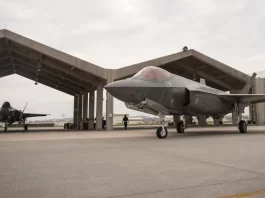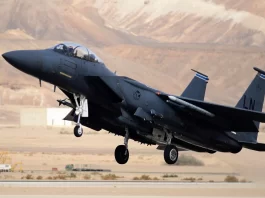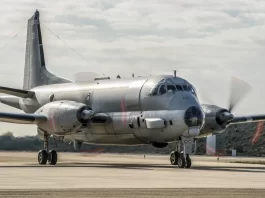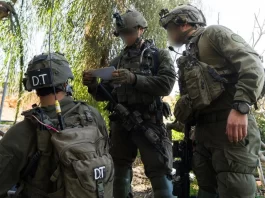On March 11, Republican Senator Marco Rubio introduced the “Deterring Chinese Preemptive Strikes Act of 2023” to Congress to bolster the protection of US and Taiwanese military installations in the Indo-Pacific region against potential Chinese aerial attacks.
As a precaution against the chance that China could launch airstrikes against Taiwan, this measure mandates that the United States Department of Defence develop a haven strategy for aviation facilities in the Indo-Pacific region.
The bill’s draft directs the US Secretary of Defence to conduct a classified investigation to identify US aviation shelters deployed in the Indo-Pacific region, including the first, second, and third island chains. It also urges Taiwan to bolster its defences against Chinese missiles, unmanned aerial vehicles, and other forms of air attack while preparing for the prospect of a Chinese military attack on Taiwan.
The US Secretary of Defence must submit a report on investigating aviation sanctuaries in the Indo-Pacific region to the appropriate congressional committees within 120 days of the bill’s passage. Within sixty days of submitting the report, the Secretary of Defence must also submit to the committees a specific plan for implementing improvements to the relevant aviation shelters, thereby enhancing the US Air Force’s survivability in the Indo-Pacific region against Chinese missile, drone, and other forms of attack.
The bill is planned to be initially reviewed by the Senate Armed Services Committee.
Previous war game simulations conducted by the CSIS (Centre for Strategic and International Studies) and other institutions have indicated that China may initiate missile attacks on military bases in the Indo-Pacific region to deter the United States from intervening in a potential Taiwan Strait conflict.
After a Chinese surveillance balloon violated US airspace in February of this year, there was widespread anticipation in the United States that the incident would prompt government agencies to implement countermeasures against China. However, on May 11, Reuters reported, citing emails from insiders, that the US State Department had delayed human rights-related sanctions, export restrictions, and other sensitive actions against China, which raised serious concerns among US lawmakers such as Senator Marco Rubio.
Since assuming office, President Biden has repeatedly asserted that the United States would defend Taiwan in the event of Chinese military aggression. The Biden administration has announced nine arms transactions to Taiwan as of this point. The most recently approved arms sales to Taiwan totalled $619 million in March of this year and included advanced equipment for the US Air Force. However, US-Taiwan defence cooperation has not progressed without obstacles. Recently, Taiwan’s Defence Minister Chiu Kuo-cheng announced that the 2019 delivery of 66 advanced F-16V fighter aircraft approved for sale to Taiwan by the United States had been delayed. Taiwan has asked the United States to “compensate” for the losses.
Multiple US media outlets recently cited anonymous sources revealing that the Biden administration intends to provide Taiwan $500 million in emergency weapon aid via the Presidential Drawdown Authority mechanism, circumventing congressional approval. Minister Chiu Kuo-cheng clarified on May 8 that the emergency aid is not related to a military procurement case but is intended as compensation for the delayed delivery of the above-mentioned arms sales.
China conducted a series of military exercises to demonstrate military deterrence against Taiwan during significant events such as the visit of former US House of Representatives Speaker Nancy Pelosi to Taiwan last year and Taiwanese President Tsai Ing-wen’s transit through the US earlier this year. Multiple times, China’s actions have escalated tensions in the Taiwan Strait, causing concern among countries in the Indo-Pacific region, including the United States, and prompting Taiwan to realise the imperative need to bolster its military defence capabilities.






